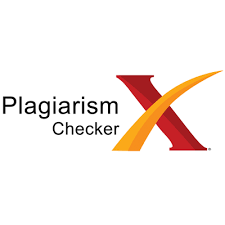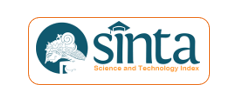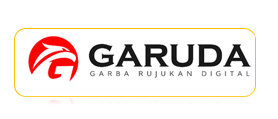PARADIGMA BARU PENDIDIKAN DAN PEMBELAJARAN SEJARAH DALAM MERDEKA BELAJAR-KAMPUS MERDEKA
Abstract
History education requires a new paradigm as the times and society change. The conventional paradigm is considered no longer to answer the needs of society. In addition to the presence of postmodernism that broke the establishment, people today are also faced with Society 5.0. A new era marked by increasingly rapid technological advances and all practicalities must be addressed so that humans remain at the center of life's arrangement. In facing the dynamics of these changes, history education must strengthen its relevance and role for society. This article aims to examine a new paradigm that can strengthen history education as a vehicle for building individual identities as part of society, nation, and citizens of the world. A change in the paradigm of history education is practically manifested in history learning which includes aspects of teaching materials and the learning process. This change is also closely related to the Merdeka Belajar-Kampus Merdeka program that has been launched. It is hoped that history education with its new paradigm will be more contextual in fostering historical awareness for a more humanist life in the present to look to the future.
Keywords
Full Text:
PDFReferences
Buku dan Jurnal
Ammert, N. (2015). History as Knowledge : Ethical Values and Meaning in Encounters with History. Frankfurt: Peter Lang.
Ashby, R. (2005). Students’ Approaches to Validating Historical Claims. In R. Ashby, P. Gordon, & P. Lee (Eds.), Understanding History: Recent Research in History Education (pp. 20–33). New York: Routledge Falmer-Taylor & Francis Group.
Bentrovato, D. (2017). History Textbook Writing in Post-conflict Societies: From Battlefield to Site and Means of Conflict Transformation. In C. Psaltis, M. Carretero, & S. Cehajic-Clancy (Eds.), History Education and Conflict Transformation: Social Psychological Theories, History Teaching, and Reconciliation (pp. 37–76). Switzerland: Palgrave Macmillan.
Carretero, M., Rodrigues-Moneo, M., & Asensio, M. (2012). History Education and the Construction of A National Identities. In M. Carretero, M. Asensio, & M. Rodrigues-Moneo (Eds.), History Education and the Construction of National Identities (pp. 1–14). Charlotte, NC.: Information Age Publishing, Inc.
Dasgupta, S. (2019). A Cognitive Historical Approach to Creativity. New York: Routledge, Taylor & Francis Group.
Dierkes, J. (2010). Postwar History Education in Japan and the Germany: Guilty Lessons. New York: Routledge.
Douma, M. J. (2018). Creative Historical Thinking (1st ed.). New York: Routledge. https://doi.org/https://doi.org/10.4324/9781315112848
Epstein, T., & Peck, C. L. (2018). Teaching and Learning Difficult Histories in International Context. (T. Epstein & C. L. Peck, Eds.). New York: Routledge.
Freire, P. (2014). Pedagogy of Hope: Reliving Pedagogy of The Oppressed. London & New York: Bloomsbury Publishing.
Gago, M. (2005). Children’s Understanding of Historical Narrative in Portugal. In R. Ashby, P. Gordon, & P. Lee (Eds.), Understanding History: Recent Research in History Education (pp. 77–90). New York: Routledge Falmer-Taylor & Francis Group.
Groot, J. de. (2009). Consuming History: Historians and Heritage in Contemporary Popular Culture. New York: Routledge, Taylor & Francis Group.
Hasan, S. H. (2012). Pendidikan Sejarah Indonesia: Isu dalam Ide dan Pembelajaran. (A. Mulyana, Ed.). Bandung: Penerbit Rizqi Press.
Junaidi, A. (2020). Pengantar. In Buku Panduan Merdeka Belajar-Kampus Merdeka. Jakarta: Dirjen Dikti Kemdikbud.
Kasali, R. (2017). Disruption: Tak Ada yang Tak Bisa Diubah Sebelum Dihadapi, Motivasi Saja Tidak Cukup. Jakarta: Pt Gramedia Pustaka Utama.
Kello, K., & Wagner, W. (2017). History Teaching as “Propaganda”? Teachers’ Communication Styles in Post-Transition Societies. In C. Psaltis, M. Carretero, & S. Cehajic-Clancy (Eds.), History Education and Conflict Transformation: Social Psychological Theories, History Teaching, and Reconciliation (pp. 201–230). Switzerland: Palgrave Macmillan.
Leone, G. (2017). When History Teaching Turns into Parrhesia: The Case of Italian Colonial Crime. (C. Psaltis, M. Carretero, & S. Cehajic-Clancy, Eds.). Switzerland: Palgrave Macmillan.
Levstik, L. S., & Barton, K. C. (2015). Doing History: Investigating with Children in Elementary and Middle Schools (Fifth). New York: Routledge.
Levstik, L. S., Henderson, A. G., & Schlarb, J. S. (2005). Digging for Clues: An Archaeological Exploration of History Cognition. In R. Ashby, P. Gordon, & P. Lee (Eds.), Understanding History: Recent Research in History Education (pp. 34–48). New York: Routledge Falmer-Taylor & Francis Group.
MacMillan, M. (2008). The Uses and Abuses of History. Canada: Penguin.
Nastiti, F. E., & ‘Abdu, A. R. N. (2020). Kesiapan Pendidikan Indonesia Menghadapi Era Society 5.0. Edcomtech: Jurnal Kajian Teknologi Pendidikan, 5(1), 61–66. Retrieved from http://journal2.um.ac.id/index.php/edcomtech/article/view/9138/pdf
Pendry, A., Husbands, C., & Kitson, A. (2005). Understanding the Knowledge Bases of History Teaching: Subject, Pupils, and Professional Practices. In R. Ashby, P. Gordon, & P. Lee (Eds.), Understanding History: Recent Research in History Education (pp. 148–158). New York: Routledge Falmer-Taylor & Francis Group.
Psaltis, C., Carretero, M., & Cehajic-Clancy, S. (2017). Conflict Transformation and History Teaching: Social Psychological Theory and Its Contributions. In History Education and Conflict Transformation: Social Psychological Theories, History Teaching, and Reconciliation (pp. 1–34). Switzerland: Palgrave Macmillan.
Renders, H., & Haan, B. de. (2014). Theoretical Discussions of Biography: Approaches from History, Microhistory, and Life Writing. (H. Renders & B. de Haan, Eds.). Leiden: Brill.
Sasikirana, V., & Herlambang, Y. T. (2020). Urgensi Merdeka Belajar di Era Revolusi Industri 4.0 dan Tantangan Society 5.0. E-Tech : Jurnal Ilmiah Teknologi Pendidikan, 08(02), 1–8. https://doi.org/10.1007/XXXXXX-XX-0000-00
Sayer, F. (2017). Sejarah Publik: Sebuah Panduan Praktis. Yogyakarta: Penerbit Ombak.
Seixas, P., Fromowitz, D., & Hill, P. (2005). History, Memory and Learning to Teach. In R. Ashby & et al (Eds.), Understanding History: Recent Research in History Education (pp. 107–123). London and New York: Routledge Falmer-Taylor & Francis Group.
Sjamsuddin, H. (2007). Metodologi Sejarah. Yogyakarta: Penerbit Ombak.
Sjamsuddin, H. (2017). Doing History, Teaching History, Learning History, and Mining Meaning & Value of History: History Education in “Life Cycle.” Seminar Internasional UPI, 26 Oktober 2017. Bandung.
Sudiarja, A. (2014). Pendidikan dalam Tantangan Zaman. Yogyakarta: Penerbit Kanisius.
Supriatna, N. (2018). Prosa dari Praha: Narasi Historis Masyarakat Konsumen Era Kapitalisme Global. Bandung: PT Remaja Rosdakarya.
Supriatna, N., & Maulidah, N. (2020). Pedagogi Kreatif: Menumbuhkan Kreativitas dalam Pembelajaran Sejarah dan IPS. Bandung: PT Remaja Rosdakarya.
Thorp, R. (2016). Uses of History in History Education. Uppsala: Umeå University & Dalarna University.
VanSledright, B. A., & Afflerbach, P. (2005). Assessing the Status of Historical Sources: An Exploratory Study of Eight US Elementary Students Reading Documents. In R. Ashby, P. Gordon, & P. Lee (Eds.), Understanding History: Recent Research in History Education (pp. 1–19). New York: Routledge Falmer-Taylor & Francis Group.
Wineburg, S. (2006). Berpikir Historis: Memetakan Masa Depan, Mengajarkan Masa Lalu. Jakarta: Yayasan Obor Indonesia.
Zadora, A. (2017). Textbook Narratives and Patriotism in Belarus. In C. Psaltis, M. Carretero, & S. Cehajic-Clancy (Eds.), History Education and Conflict Transformation: Social Psychological Theories, History Teaching, and Reconciliation (pp. 257–276). Switzerland: Palgrave Macmillan.
Website
Fru, R. N. (2015). History Education at the Crossroads: Challenges and Prospects in a Lesotho Context. Retrieved from http://www.scielo.org.za/scielo.php?script=sci_arttext&pid=S2223-03862015000100005
Milo, G. (2015). Why do Students Hate History? Retrieved from https://www.edweek.org/teaching-learning/opinion-why-do-students-hate-history/2015/09
DOI: http://dx.doi.org/10.17977/um0330v4i2p128-142
Refbacks
- There are currently no refbacks.

This work is licensed under a Creative Commons Attribution-ShareAlike 4.0 International License.
Editorial office:
History Department, Faculty of Social Science,
Universitas Negeri Malang
Jl. Semarang No.5 Kota Malang 65145,
Phone. (0341) 551312,
email: jpsi@um.ac.id
Website: http://journal2.um.ac.id/index.php/sejarah/index
E-ISSN 2622-1837

This work is licensed under a CC BY SA 4.0.









